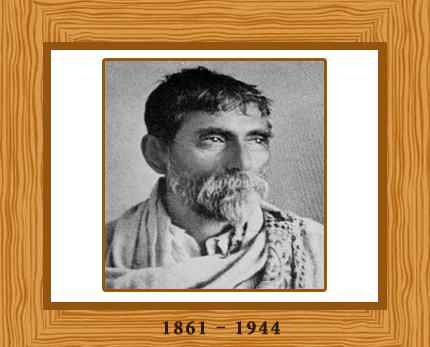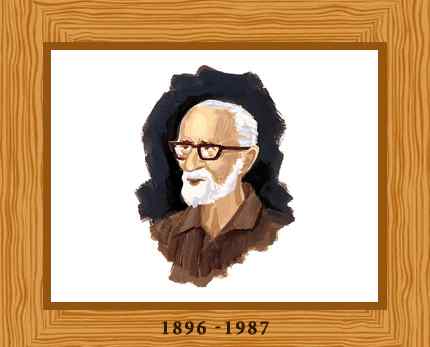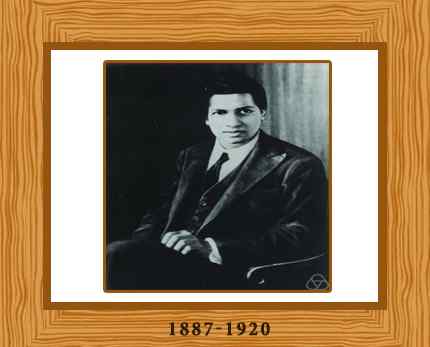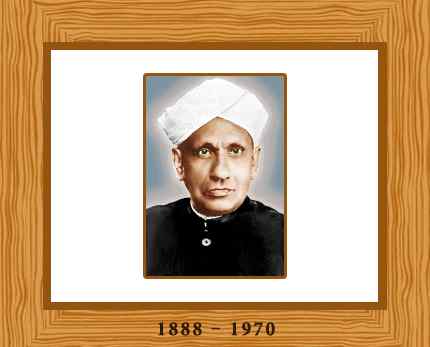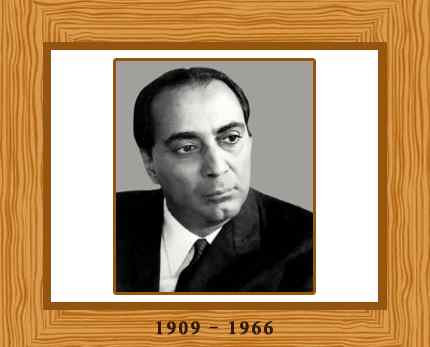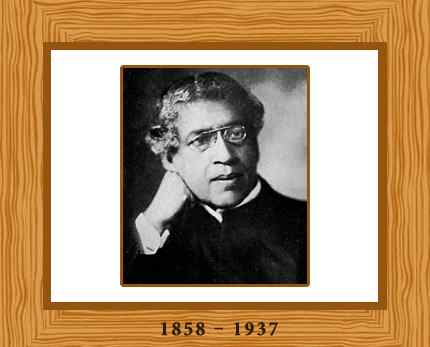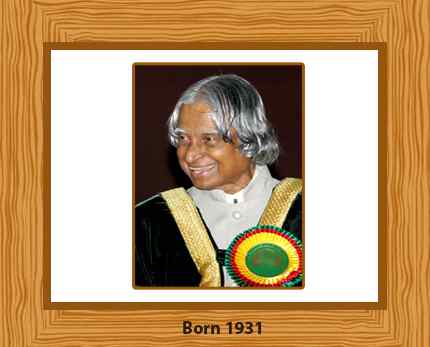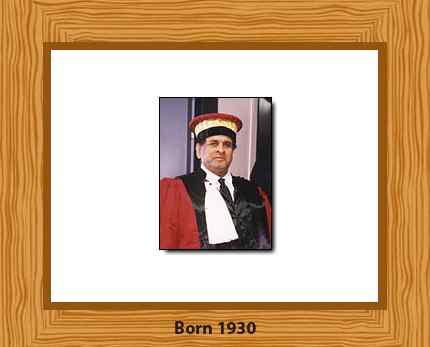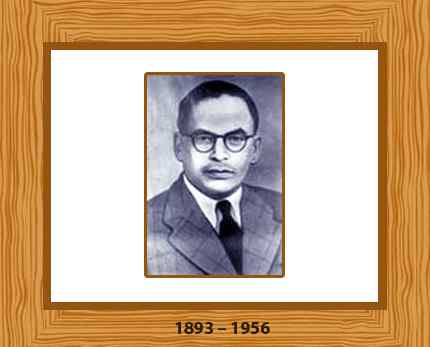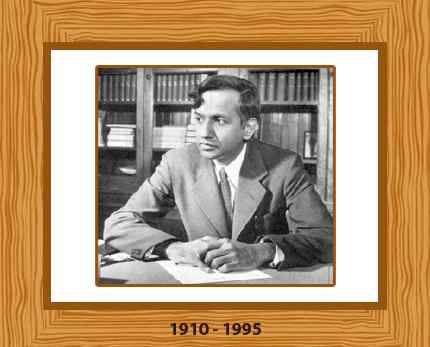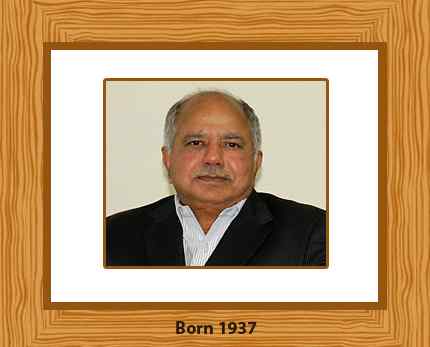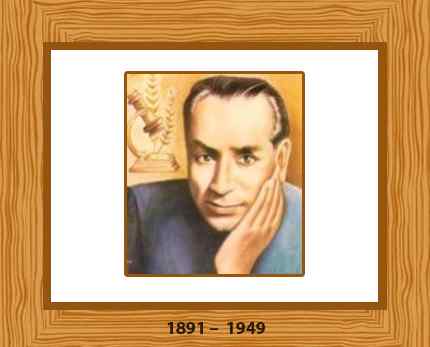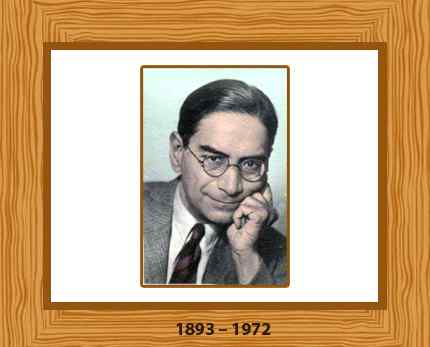Kashmir Issue - M. K. Gandhi
(Speech at the Prayer Meeting on 4th January 1948)
 Today there is talk of war everywhere.
Everyone fears a war breaking out between the two countries. If that
happens it will be a calamity both for India and for Pakistan. India has
written to the U.N. because whenever there is a fear of conflict
anywhere the U.N. is asked to promote a settlement and to stop fighting
from breaking out. India therefore wrote to the U. N. O. however trivial
the issue may appear to be, it could lead to a war between the two
countries. It is a long memorandum and it has been cabled. Pakistan’s
leaders Zafrullah Khan and Liaquat Ali Khan have since issued long
statements. I would take leave to say that their argument does not
appeal to me. You may ask if I approve of the Union Government
approaching the UNO I may say that I both approve and do not approve of
what they did. I approve of it, because after all what else are they to
do? They are convinced that what they are doing is right. If there are
raids from outside the frontier of Kashmir, the obvious conclusion is
that it must be with the connivance of Pakistan. Pakistan can deny it.
But the denial does not settle the matter. Kashmir has acceded the
accession upon certain conditions. If Pakistan harasses Kashmir and if
Sheikh Abdullah who is the leader of Kashmir asks the Indian Union for
help, the latter is bound to send help. Such help therefore was sent to
Kashmir. At the same time Pakistan is being requested to get out of
Kashmir and to arrive at a settlement with India over the question
through bilateral negotiations. If no settlement can be reached in this
way then a war is inevitable. It is to avoid the possibility of war that
the Union Government has taken the step it did. Whether they are right
in doing so or not God alone knows. Whatever might have been the
attitude of Pakistan, if I had my way I would have invited Pakistan’s
representatives to India and we could have met, discussed the matter and
worked out some settlement. They keep saying that they want an amicable
settlement but they do nothing to create the conditions for such a
settlement. I shall therefore humbly say to the responsible leaders of
Pakistan that though we are now two countries – which is a thing I never
wanted – we should at least try to arrive at an agreement so that we
could live as peaceful neighbors. Let us grant for the sake of argument
that all Indians are bad, but Pakistan at least is a new-born nation
which has more ever come into being in the name of religion and it
should at least keep itself clean. But they themselves make no such
claim. It is not their argument that Muslims have committed no
atrocities in Pakistan. I shall therefore suggest that it is now their
duty, as far as possible, to arrive at an amicable understanding with
India and live in harmony with her. Mistakes were made on both sides. Of
this o have no doubt. But this does not mean that we should persist in
those mistakes, for then in the end we shall only destroy ourselves in a
war and the whole of the sub-continent will pass into the hands of some
third power. That will be the worst imaginable fate for us. I shudder
to think of it. Therefore the two Dominions should come together with
God as witness and find a settlement. The matter is now before the UNO.
It cannot be withdrawn from there. But if India and Pakistan come to a
settlement the big powers in the UNO will have to endorse that
settlement. They will not object to the settlement. They themselves can
only say that they will do their best to see that the two countries
arrive at an understanding through mutual discussions. Let us pray to
God is to grant that we may either learn to live in amity with each
other or if we must light to let us fight to the very end. That may be
folly but sooner or later it will purify us. Now a few words about
Delhi. I came to know of the incidents which took place last evening
through Brijkishan. I had gone to the Camp for the evening prayer. I
came away after the prayer but he had stayed over to talk to the people
in the Camp. There are some Muslim houses at as little distance from the
Camp. About four or five hundred inmates of the Camp mostly women and
children but also some men – issued out of the Camp to take possession
of the houses. I am told they did not indulge in any kind of violence.
Some of the houses were vacant. Some were occupied by the owners. They
tried to take possession even of the latter. The police were near at
hand. They immediately went to the spot and brought the situation under
control at about 9 O’ clock according to the information I have. The
police have stayed on there. I understand they had to use tear gas. Tear
gas does not kill but it can be pretty painful. I am told that
something has happened today again.
Today there is talk of war everywhere.
Everyone fears a war breaking out between the two countries. If that
happens it will be a calamity both for India and for Pakistan. India has
written to the U.N. because whenever there is a fear of conflict
anywhere the U.N. is asked to promote a settlement and to stop fighting
from breaking out. India therefore wrote to the U. N. O. however trivial
the issue may appear to be, it could lead to a war between the two
countries. It is a long memorandum and it has been cabled. Pakistan’s
leaders Zafrullah Khan and Liaquat Ali Khan have since issued long
statements. I would take leave to say that their argument does not
appeal to me. You may ask if I approve of the Union Government
approaching the UNO I may say that I both approve and do not approve of
what they did. I approve of it, because after all what else are they to
do? They are convinced that what they are doing is right. If there are
raids from outside the frontier of Kashmir, the obvious conclusion is
that it must be with the connivance of Pakistan. Pakistan can deny it.
But the denial does not settle the matter. Kashmir has acceded the
accession upon certain conditions. If Pakistan harasses Kashmir and if
Sheikh Abdullah who is the leader of Kashmir asks the Indian Union for
help, the latter is bound to send help. Such help therefore was sent to
Kashmir. At the same time Pakistan is being requested to get out of
Kashmir and to arrive at a settlement with India over the question
through bilateral negotiations. If no settlement can be reached in this
way then a war is inevitable. It is to avoid the possibility of war that
the Union Government has taken the step it did. Whether they are right
in doing so or not God alone knows. Whatever might have been the
attitude of Pakistan, if I had my way I would have invited Pakistan’s
representatives to India and we could have met, discussed the matter and
worked out some settlement. They keep saying that they want an amicable
settlement but they do nothing to create the conditions for such a
settlement. I shall therefore humbly say to the responsible leaders of
Pakistan that though we are now two countries – which is a thing I never
wanted – we should at least try to arrive at an agreement so that we
could live as peaceful neighbors. Let us grant for the sake of argument
that all Indians are bad, but Pakistan at least is a new-born nation
which has more ever come into being in the name of religion and it
should at least keep itself clean. But they themselves make no such
claim. It is not their argument that Muslims have committed no
atrocities in Pakistan. I shall therefore suggest that it is now their
duty, as far as possible, to arrive at an amicable understanding with
India and live in harmony with her. Mistakes were made on both sides. Of
this o have no doubt. But this does not mean that we should persist in
those mistakes, for then in the end we shall only destroy ourselves in a
war and the whole of the sub-continent will pass into the hands of some
third power. That will be the worst imaginable fate for us. I shudder
to think of it. Therefore the two Dominions should come together with
God as witness and find a settlement. The matter is now before the UNO.
It cannot be withdrawn from there. But if India and Pakistan come to a
settlement the big powers in the UNO will have to endorse that
settlement. They will not object to the settlement. They themselves can
only say that they will do their best to see that the two countries
arrive at an understanding through mutual discussions. Let us pray to
God is to grant that we may either learn to live in amity with each
other or if we must light to let us fight to the very end. That may be
folly but sooner or later it will purify us. Now a few words about
Delhi. I came to know of the incidents which took place last evening
through Brijkishan. I had gone to the Camp for the evening prayer. I
came away after the prayer but he had stayed over to talk to the people
in the Camp. There are some Muslim houses at as little distance from the
Camp. About four or five hundred inmates of the Camp mostly women and
children but also some men – issued out of the Camp to take possession
of the houses. I am told they did not indulge in any kind of violence.
Some of the houses were vacant. Some were occupied by the owners. They
tried to take possession even of the latter. The police were near at
hand. They immediately went to the spot and brought the situation under
control at about 9 O’ clock according to the information I have. The
police have stayed on there. I understand they had to use tear gas. Tear
gas does not kill but it can be pretty painful. I am told that
something has happened today again.All I can say is that is a matter of great shame for us. Have not the refugees learnt even from their immense suffering that they have to exercise some restraint? It is highly improper to go and occupy other people’s houses. It is for the Government to find them shelter or whatever else their need. Today the Government is our own. But if we defy our own Government and defy the police and forcibly occupy houses the Government is not likely to continue for long. It is still worse that such things should happen in the capital city of India where there are so many ambassadors from all over the world. Do we want to show them the spectacle of people occupying what-ever they can? It is all the more regrettable that women and children were used as a shield. It is inhuman. It is like Muslim rulers keeping a herd of cows in the anguard of their armies to make sure that the Hindus would not fight. It is uncivilized, barbaric behavior. It is still more barbaric to put women and children in front to provide against the police making a lathi charge. It is abuse of womanhood. I must humbly ask all the refugees - women and children – not to behave in this way. Let them settle down. If they don’t, then apart from a war between Indian and Pakistan, we may kill ourselves in mutual strife. We may lose Delhi and make ourselves the laughing-stock of the world. If we want to keep India a free country, we must stop the things that are at present going on.
Reception In Madras
In
reply to the Welcome address read by Mr. G. A. Natesan on behalf of the
Indian South African League, at a meeting at the Victoria Public Hall,
Madras, on the 21st April 1915, with Dr. Sir Subramania Iyer in the
Chair, Mr. Gandhi said -
Mr. Chairman and Friends, - On behalf of my wife and myself I am deeply grateful for the great honour this you here in Madras, and may I say, this Presidency, have done to us and the affection that has been lavished upon us in this great and enlightened - not benighted - Presidency.
If there is anything that we have deserved, as has been stated in this beautiful address, I can only say I lay it at the feet of my Master under whose inspiration I have been working all this time under exile in South Africa. (Hear, hear). In so far as the sentiments expressed in this address are merely prophetic. Sir, I accept them as a blessing and as a prayer from you and from this great meeting that both my wife and I myself may possess the power, the inclination, and the life to dedicate whatever we may develop in this sacred land of ours to the service of the Motherland. (Cheers). It is no wonder that we have come to Madras. As my Friend, Mr. Natesan, will perhaps tell you, we have been overdue and we have neglected Madras. But we have done nothing of the kind. We know that we had a corner in your hearts and we knew that you will not misjudge us if we did not hasten to Madras before going to the other presidencies and to other towns. But, Sir, if one-tenth of the language that has been used in this address is deserved by us, what language do you propose to use for those who have lost their lives, and therefore finished their work on behalf of your suffering countrymen in South Africa? What language do you propose to use for Magappan and Narayansawmy, lads of seventeen or eighteen years, who braved in simple faith all the trials, all the sufferings, and all the indignities for the sake of the honour of the Motherland (Cheers.). What language do you propose to use with reference to Valliamma, that sweet girl of seventeen years who was discharged from Maritzburg prison, skin and bone suffering from fever to which she succumbed after about a month's time (Cries of shame).
It was the Madrasis who of all the Indians were singled out by the great Divinity that rules over us for this great work. Do you know that in the great city of Johannesburg, the Madarasis look on a Madrasis as dishonored if he has not passed through the jails once or twice during this terrible crisis that your countrymen in South Africa went through during these eight long years? You have said that I inspired these great men and women, but I cannot accept that proposition. It was they, the simple-minded folk, who worked away in faith, never expecting the slightest reward, who inspired me, who kept me to the proper level , and who inspired me by their great sacrifice, by their great faith, by their great trust in the great God, to do the work that I was able to do. (Cheers). It is my misfortune that my wife and I have been obliged to work in the lime-light, and you have magnified out of all proportion (cries of 'No? No?') this little work we have been able to do. Believe me, my dear friends, that if you consider, whether in India or in South Africa, it is possible for us, poor mortals-the same individuals, the same stuff of which you are made if you consider that it is possible for us to do anything whatsoever without your assistance and without your doing the same thing that we would be prepared to do, you are lost, and we are also lost, and our services will be in vain, I do not for one moment believe that the inspiration was given by us. The inspiration was given by them to us, and we were able to be interpreters between the powers who called themselves the Governors and those men for whom redress was so necessary. We were simply links between those two parties and nothing more. It was my duty, having received the education that was given to me by my parents to interpret what was going on in our midst to those simple folk, and they rose to the occasion. They realised the might of religious force, and it was they who inspired us, and let them who have finished their work, and who have died for you and me, let them inspire you and us. We are still living and who knows whether the devil will not possess us tomorrow and we shall not forsake the post of duty before any new danger that may face us, But these three have gone for ever.
An old man of 75 from the United Provinces, Harbart Singh, has also joined the majority and died in jail in South Africa; and he deserved the crown that you would seek to impose upon us. These young men deserve all the adjectives that you have so affectionately, but blindly lavished upon us. It was not only the Hindus who struggled, but there were Mohamedans, Parsis and Christians, and almost every part of India was represented in the struggled. They realised the common danger, and they realised also what their destiny was an Indians, and it was they, and they alone, who matched the soul-forces against the physical forces. (Loud applause.)
Mr. Chairman and Friends, - On behalf of my wife and myself I am deeply grateful for the great honour this you here in Madras, and may I say, this Presidency, have done to us and the affection that has been lavished upon us in this great and enlightened - not benighted - Presidency.
If there is anything that we have deserved, as has been stated in this beautiful address, I can only say I lay it at the feet of my Master under whose inspiration I have been working all this time under exile in South Africa. (Hear, hear). In so far as the sentiments expressed in this address are merely prophetic. Sir, I accept them as a blessing and as a prayer from you and from this great meeting that both my wife and I myself may possess the power, the inclination, and the life to dedicate whatever we may develop in this sacred land of ours to the service of the Motherland. (Cheers). It is no wonder that we have come to Madras. As my Friend, Mr. Natesan, will perhaps tell you, we have been overdue and we have neglected Madras. But we have done nothing of the kind. We know that we had a corner in your hearts and we knew that you will not misjudge us if we did not hasten to Madras before going to the other presidencies and to other towns. But, Sir, if one-tenth of the language that has been used in this address is deserved by us, what language do you propose to use for those who have lost their lives, and therefore finished their work on behalf of your suffering countrymen in South Africa? What language do you propose to use for Magappan and Narayansawmy, lads of seventeen or eighteen years, who braved in simple faith all the trials, all the sufferings, and all the indignities for the sake of the honour of the Motherland (Cheers.). What language do you propose to use with reference to Valliamma, that sweet girl of seventeen years who was discharged from Maritzburg prison, skin and bone suffering from fever to which she succumbed after about a month's time (Cries of shame).
It was the Madrasis who of all the Indians were singled out by the great Divinity that rules over us for this great work. Do you know that in the great city of Johannesburg, the Madarasis look on a Madrasis as dishonored if he has not passed through the jails once or twice during this terrible crisis that your countrymen in South Africa went through during these eight long years? You have said that I inspired these great men and women, but I cannot accept that proposition. It was they, the simple-minded folk, who worked away in faith, never expecting the slightest reward, who inspired me, who kept me to the proper level , and who inspired me by their great sacrifice, by their great faith, by their great trust in the great God, to do the work that I was able to do. (Cheers). It is my misfortune that my wife and I have been obliged to work in the lime-light, and you have magnified out of all proportion (cries of 'No? No?') this little work we have been able to do. Believe me, my dear friends, that if you consider, whether in India or in South Africa, it is possible for us, poor mortals-the same individuals, the same stuff of which you are made if you consider that it is possible for us to do anything whatsoever without your assistance and without your doing the same thing that we would be prepared to do, you are lost, and we are also lost, and our services will be in vain, I do not for one moment believe that the inspiration was given by us. The inspiration was given by them to us, and we were able to be interpreters between the powers who called themselves the Governors and those men for whom redress was so necessary. We were simply links between those two parties and nothing more. It was my duty, having received the education that was given to me by my parents to interpret what was going on in our midst to those simple folk, and they rose to the occasion. They realised the might of religious force, and it was they who inspired us, and let them who have finished their work, and who have died for you and me, let them inspire you and us. We are still living and who knows whether the devil will not possess us tomorrow and we shall not forsake the post of duty before any new danger that may face us, But these three have gone for ever.
An old man of 75 from the United Provinces, Harbart Singh, has also joined the majority and died in jail in South Africa; and he deserved the crown that you would seek to impose upon us. These young men deserve all the adjectives that you have so affectionately, but blindly lavished upon us. It was not only the Hindus who struggled, but there were Mohamedans, Parsis and Christians, and almost every part of India was represented in the struggled. They realised the common danger, and they realised also what their destiny was an Indians, and it was they, and they alone, who matched the soul-forces against the physical forces. (Loud applause.)
Statement In The Great Trial of 1922
(18-03-1922)
[
The historical trial of Mahatma Gandhi and
Shri. Shankarlal Ghelabhai Banker, editor, and printer and publisher
respectively of Young India, on charges under Section 124 A of the
Indian Penal Code, was held on Saturday, 18th March 1922, before Mr. C.
N. Broomfield, I. C. S., District and Sessions Judge, Ahmedabad.
Sir J. T. Strangman, Advocate-General,
with Rao Bahadur Girdharlal Uttamram, Public Prosecutor of Ahmedabad,
appeared for the Crown. Mr. A. C. Wild, Remembrancer of Legal Affairs,
was also present. Mahatma Gandhi and Shri Shankarlal Banker were
undefended.
Among the members of the public who were
present on the occasion were : Kasturba Gandhi, Sarojini Naidu, Pandit
M. M. Malaviya, Shri N. C. Kelkar, Smt. J. B. Petit, and Smt. Anasuyaben
Sarabhai.
The Judge, who took his seat at 12 noon,
said that there was slight mistake in the charges were then read out by
the Registrar. These charges were of “bringing or attempting to excite
disaffection towards His Majesty’s Government established by law in
British India, and thereby committing offences punishable under Section
124 A of the Indian Penal Code,” the offences being in three articles
published in Young India of September 29 and December 15 of 1921, and
February 23 of 1922. The offending articles were then read out : first
of them was, “Tampering with Loyalty”; and second, “The Puzzle and its
Solution”, and the last was “Shaking the Manes”.
The Judge said that the law required that
the charges should not be read out but explained. In this case it would
not be necessary for him to say much by way of explanation. The charge
in each case was that of bringing or attempting to excite into hatred or
contempt or exciting or attempting to excite disaffection towards His
Majesty’s Government, established by law in British India. Both the
accused were charged with the three offences under Section 124 A,
contained in the articles read out, written by Mahatma Gandhi and
printed by Shri Banker.
The charges having been read out, the
Judge called upon the accused to plead to the charges. He asked Gandhiji
whether he pleaded guilty or claimed to be tried.
Gandhiji said : “I plead guilty to all the
charges. I observe that the King’s name has been omitted from the
charge, and it has been properly omitted.”]
The Judge asked Shri banker the same question and he too readily pleaded guilty.
The
Judge wished to give his verdict immediately after Gandhiji had pleaded
guilty, but Sir Strangman insisted that the procedure should be carried
out in full. The Advocate-General requested the Judge to take into
account “the occurrences in Bombay, Malabar and Chauri Chaura, leading
to rioting and murder”. He admitted, indeed, that “in these articles you
find that non-violence is insisted upon as an item of the campaign and
of the creed,” but the added “of what value is it to insist on
non-violence, if incessantly you preach disaffection towards the
Government and hold it up as a treacherous Government, and if you openly
and deliberately seek to instigate others to overthrow it?” These were
the circumstances which he asked the Judge to take into account in
passing sentence on the accused.
As regards Shri Banker, the second
accused, the offence was lesser. He did the publication but did not
write. Sir Strangman’s instructions were that Shri Banker was a man of
means and he requested the court to impose a substantial fine in
addition to such term of imprisonment as might be inflicted upon.
Court : Mr. Gandhi, do you wish to make any statement on the question of sentence?
Gandhiji : I would like to make a statement.
Court : Could you give me in writing to put it on record?
Gandhiji : I shall give it as soon as I finish it.
[Gandhiji then made the following oral statement followed by a written statement that he read.]
Before I read this statement I would like
to state that I entirely endorse the learned Advocate-General’s remarks
in connection with my humble self. I think that he has made, because it
is very true and I have no desire whatsoever to conceal from this court
the fact that to preach disaffection towards the existing system of
Government has become almost a passion with me, and the Advocate-General
is entirely in the right when he says that my preaching of disaffection
did not commence with my connection with Young India but that it
commenced much earlier, and in the statement that I am about to read, it
will be my painful duty to admit before this court that it commenced
much earlier than the period stated by the Advocate-General. It is a
painful duty with me but I have to discharge that duty knowing the
responsibility that rests upon my shoulders, and I wish to endorse all
the blame that the learned Advocate-General has thrown on my shoulders
in connection with the Bombay occurrences, Madras occurrences and the
Chauri Chuara occurrences. Thinking over these things deeply and
sleeping over them night after night, it is impossible for me to
dissociate myself from the diabolical crimes of Chauri Chaura or the mad
outrages of Bombay. He is quite right when he says, that as a man of
responsibility, a man having received a fair share of education, having
had a fair share of experience of this world, I should have known the
consequences of every one of my acts. I know them. I knew that I was
playing with fire. I ran the risk and if I was set free I would still do
the same. I have felt it this morning that I would have failed in my
duty, if I did not say what I said here just now.
I wanted to avoid violence. Non-violence
is the first article of my faith. It is also the last article of my
creed. But I had to make my choice. I had either to submit to a system
which I considered had done an irreparable harm to my country, or incur
the risk of the mad fury of my people bursting forth when they
understood the truth from my lips. I know that my people have sometimes
gone mad. I am deeply sorry for it and I am, therefore, here to submit
not to a light penalty but to the highest penalty. I do not ask for
mercy. I do not plead any extenating act. I am here, therefore, to
invite and cheerfully submit to the highest penalty that can be
inflicted upon me for what in law is a deliberate crime, and what
appears to me to be the highest duty of a citizen. The only course open
to you, the Judge, is, as I am going to say in my statement, either to
resign your post, or inflict on me the severest penalty if you believe
that the system and law you are assisting to administer are good for the
people. I do not except that kind of conversion. But by the time I have
finished with my statement you will have a glimpse of what is raging
within my breast to run this maddest risk which a sane man can run.
[He then read out the written statement : ]
I owe it perhaps to the Indian public and to the public in England, to
placate which this prosecution is mainly taken up, that I should explain
why from a staunch loyalist and co-operator, I have become an
uncompromising disaffectionist and non-co-operator. To the court too I
should say why I plead guilty to the charge of promoting disaffection
towards the Government established by law in India.
My public life began in 1893 in South
Africa in troubled weather. My first contact with British authority in
that country was not of a happy character. I discovered that as a man
and an Indian, I had no rights. More
correctly I discovered that I had no rights as a man because I was an
Indian.
But I was not baffled. I thought that this
treatment of Indians was an excrescence upon a system that was
intrinsically and mainly good. I gave the Government my voluntary and
hearty co-operation, criticizing it freely where I felt it was faulty
but never wishing its destruction.
Consequently when the existence of the
Empire was threatened in 1899 by the Boer challenge, I offered my
services to it, raised a volunteer ambulance corps and served at several
actions that took place for the relief of Ladysmith. Similarly in 1906,
at the time of the Zulu ‘revolt’, I raised a stretcher bearer party and
served till the end of the ‘rebellion’. On both the occasions I
received medals and was even mentioned in dispatches. For my work in
South Africa I was given by Lord Hardinge a Kaisar-i-Hind gold medal.
When the war broke out in 1914 between England and Germany, I raised a
volunteer ambulance cars in London, consisting of the then resident
Indians in London, chiefly students. Its work was acknowledge by the
authorities to be valuable. Lastly, in India when a special appeal was
made at the war Conference in Delhi in 1918 by Lord Chelmsford for
recruits, I struggled at the cost of my health to raise a corps in
Kheda, and the response was being made when the hostilities ceased and
orders were received that no more recruits were wanted. In all these
efforts at service, I was actuated by the belief that it was possible by
such services to gain a status of full equality in the Empire for my
countrymen.
The first shock came in the shape of the
Rowlatt Act-a law designed to rob the people of all real freedom. I felt
called upon to lead an intensive agitation against it. Then followed
the Punjab horrors beginning with the massacre at Jallianwala Bagh and
culminating in crawling orders, public flogging and other indescribable
humiliations. I discovered too that the plighted word of the Prime
Minister to the Mussalmans of India regarding the integrity of Turkey
and the holy places of Islam was not likely to be fulfilled. But in
spite of the forebodings and the grave warnings of friends, at the
Amritsar Congress in 1919, I fought for co-operation and working of the
Montagu-Chemlmsford reforms, hoping that the Prime Minister would redeem
his promise to the Indian Mussalmans, that the Punjab wound would be
healed, and that the reforms, inadequate and unsatisfactory though they
were, marked a new era of hope in the life of India.
But all that hope was shattered. The
Khilafat promise was not to be redeemed. The Punjab crime was
whitewashed and most culprits went not only unpunished but remained in
service, and some continued to draw pensions from the Indian revenue and
in some cases were even rewarded. I saw too that not only did the
reforms not mark a change of heart, but they were only a method of
further raining India of her wealth and of prolonging her servitude.
I came reluctantly to the conclusion that
the British connection had made India more helpless than she ever was
before, politically and economically. A disarmed India has no power of
resistance against any aggressor if she wanted to engage, in an armed
conflict with him. So much is this the case that some of our best men
consider that India must take generations, before she can achieve
Dominion Status. She has become so poor that she has little power of
resisting famines. Before the British advent India spun and wove in her
millions of cottages, just the supplement she needed for adding to her
meagre agricultural resources. This cottage industry, so vital for
India’s existence, has been ruined by incredibly heartless and inhuman
processes as described by English witness. Little do town dwellers how
the semi-starved masses of India are slowly sinking to lifelessness.
Little do they know that their miserable comfort represents the
brokerage they get for their work they do for the foreign exploiter,
that the profits and the brokerage are sucked from the masses. Little do
realize that the Government established by law in British India is
carried on for this exploitation of the masses. No sophistry, no
jugglery in figures, can explain away the evidence that the skeletons in
many villages present to the naked eye. I have no doubt whatsoever that
both England and the town dweller of India will have to answer, if
there is a God above, for this crime against humanity, which is perhaps
unequalled in history. The law itself in this country has been used to
serve the foreign exploiter. My unbiased examination of the Punjab
Marital Law cases has led me to believe that at least ninety-five per
cent of convictions were wholly bad. My experience of political cases in
India leads me to the conclusion, in nine out of every ten, the
condemned men were totally innocent. Their crime consisted in the love
of their country. In ninety-nine cases out of hundred, justice has been
denied to Indians as against Europeans in the courts of India. This is
not an exaggerated picture. It is the experience of almost every Indian
who has had anything to do with such cases. In my opinion, the
administration of the law is thus prostituted, consciously or
unconsciously, for the benefit of the exploiter.
The greater misfortune is that the
Englishmen and their Indian associates in the administration of the
country do not know that they are engaged in the crime I have attempted
to describe. I am satisfied that many Englishmen and Indian officials
honestly systems devised in the world, and that India is making steady,
though, slow progress. They do not know, a subtle but effective system
of terrorism and an organized display of force on the one hand, and the
deprivation of all powers of retaliation or self-defense on the other,
as emasculated the people and induced in them the habit of simulation.
This awful habit has added to the ignorance and the self-deception of
the administrators. Section 124 A, under which I am happily charged, is
perhaps the prince among the political sections of the Indian Penal Code
designed to suppress the liberty of the citizen. Affection cannot be
manufactured or regulated by law. If one has no affection for a person
or system, one should be free to give the fullest expression to his
disaffection, so long as he does not contemplate, promote, or incite to
violence. But the section under which mere promotion of disaffection is a
crime. I have studied some of the cases tried under it; I know that
some of the most loved of India’s patriots have been convicted under it.
I consider it a privilege, therefore, to be charged under that section.
I have endeavored to give in their briefest outline the reasons for my
disaffection. I have no personal ill-will against any single
administrator, much less can I have any disaffection towards the King’s
person. But I hold it to be a virtue to be disaffected towards a
Government which in its totality has done more harm to India than any
previous system. India is less manly under the British rule than she
ever was before. Holding such a belief, I consider it to be a sin to
have affection for the system. And it has been a precious privilege for
me to be able to write what I have in the various articles tendered in
evidence against me.
In fact, I believe that I have rendered a
service to India and England by showing in non-co-operation the way out
of the unnatural state in which both are living. In my opinion,
non-co-operation with evil is as much a duty as is co-operation with
good. But in the past, non-co-operation has been deliberately expressed
in violence to the evil-doer. I am endeavoring to show to my countrymen
that violent non-co-operation only multiples evil, and that as evil can
only be sustained by violence, withdrawal of support of evil requires
complete abstention from violence. Non-violence implies voluntary
submission to the penalty for non-co-operation with evil. I am here,
therefore, to invite and submit cheerfully to the highest penalty that
can be inflicted upon me for what in law is deliberate crime, and what
appears to me to be the highest duty of a citizen. The only course open
to you, the Judge and the assessors, is either to resign your posts and
thus dissociate yourselves from evil, if you feel that the law you are
called upon to administer is an evil, and that in reality I am innocent,
or to inflict on me the severest penalty, if you believe that the
system and the law you are assisting to administer are good for the
people of this country, and that my activity is, therefore, injurious to
the common weal. AUTHOR:Divakarbabu
 scolded Mohan after the class and Mohan felt wounded. But deep inside him he knew that what he had done was right.
scolded Mohan after the class and Mohan felt wounded. But deep inside him he knew that what he had done was right.  But his father did not live long. He died when Mohan was only sixteen.
But his father did not live long. He died when Mohan was only sixteen. These
experiences inspired him to do something to end these sufferings of
Indians. He called a meeting of the Indians in Pretoria and told them to
form a league. This was his first public speech. It caused a new
awakening among Indians.
These
experiences inspired him to do something to end these sufferings of
Indians. He called a meeting of the Indians in Pretoria and told them to
form a league. This was his first public speech. It caused a new
awakening among Indians.














 Young elephants gather at a watering hole in Zimbabwe's Hwange National Park. (Image credit:
Young elephants gather at a watering hole in Zimbabwe's Hwange National Park. (Image credit: 


